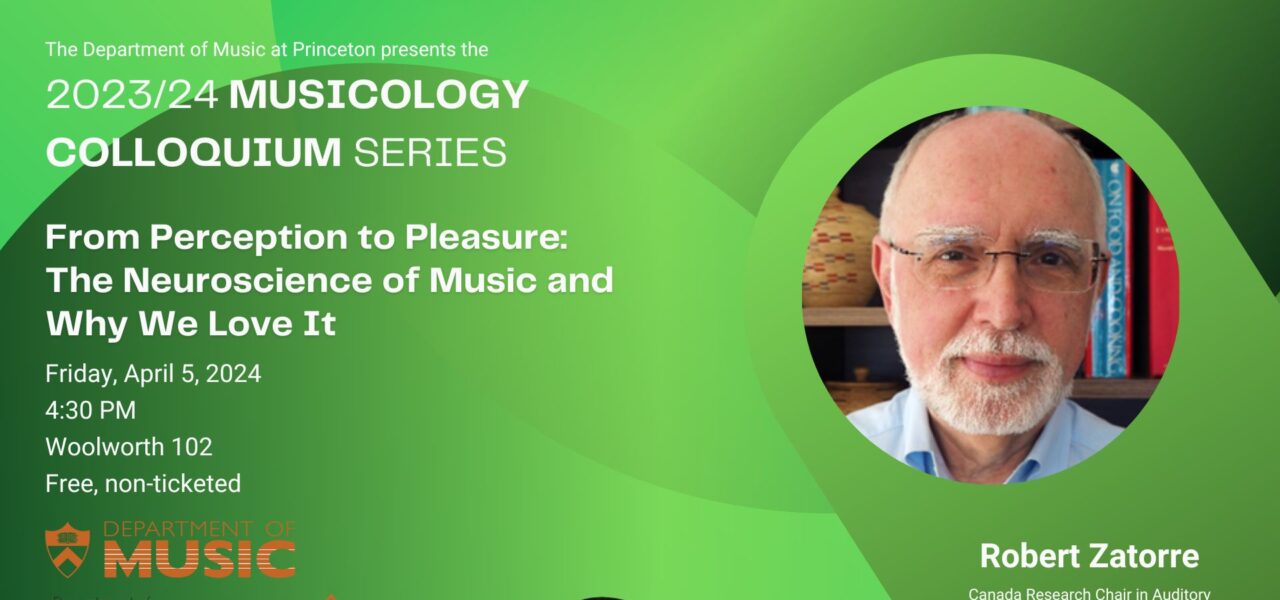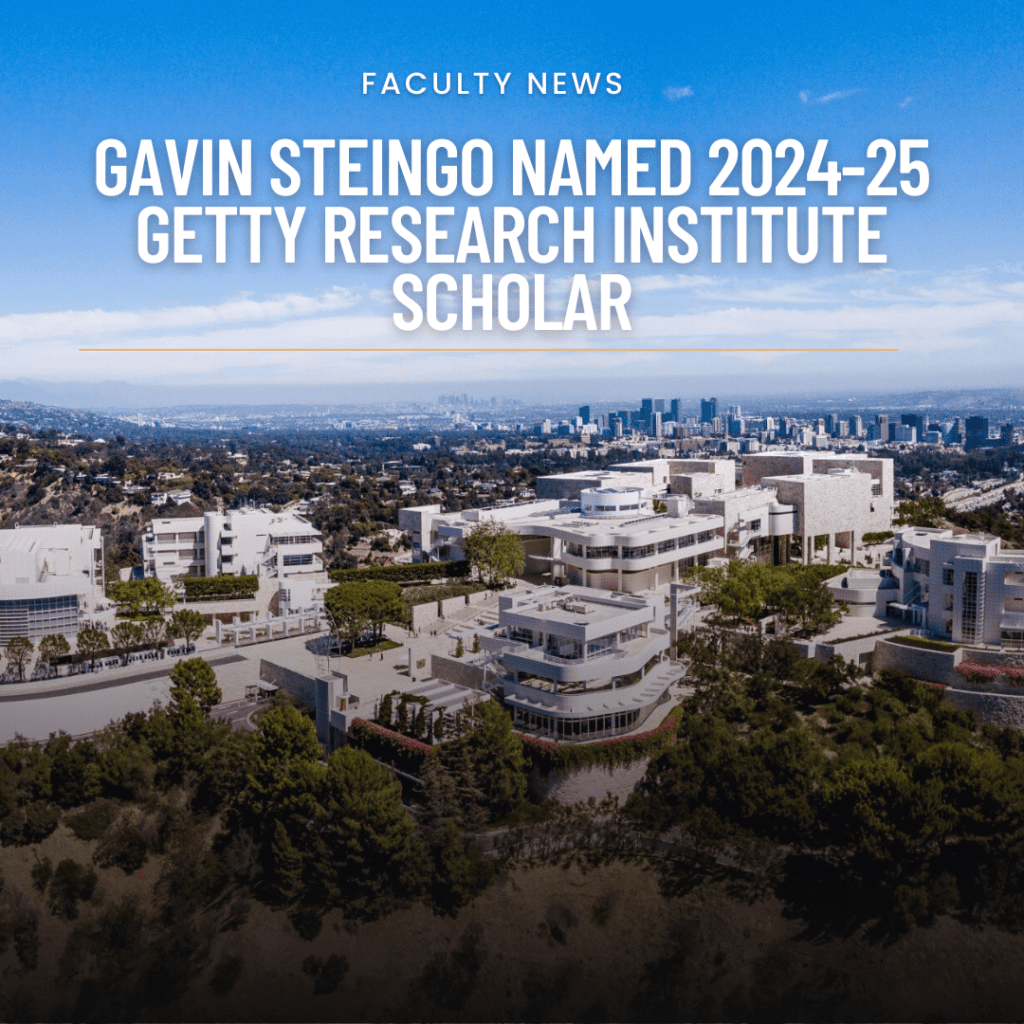Please consult our COVID-19 policies and resources for guidance on attending public performances.

Musicology Colloquium: Robert Zatorre
Presented by Musicology Colloquium Series
date & time
Fri, Apr 5, 2024
4:30 pm - 6:30 pm
ticketing
Free, Unticketed
- This event has passed.

From Perception to Pleasure. The Neuroscience of Music and Why We Love It
Robert Zatorre, Montreal Neurological Institute, McGill University
Abstract:
Music has existed in human societies since prehistory, likely because it allows expression and regulation of emotion, and evokes pleasure. In this lecture I will present findings from cognitive neuroscience that bear on the question of how we get from perception of sound patterns to pleasurable responses. I will first discuss evidence that corticocortical loops from and to the auditory cortex are responsible not only for perceptual processes but also for working memory, sensory-motor, and predictive functions that are essential to produce and perceive music. Then, I will discuss neuroimaging and brain modulation studies from our lab focusing on the dopaminergic reward system, its involvement in musical pleasure, and what happens when that system is disrupted. I propose that pleasure in music arises from interactions between cortical loops that enable expectancies to emerge from perceived sound patterns, and subcortical systems responsible for reward and valuation. This model integrates knowledge derived from basic neuroscience of reward mechanisms with independently derived concepts, such as tension and anticipation, from music theory. It may also serve as a way of thinking more broadly about aesthetic rewards.
Biographical Sketch:
Robert Zatorre was born and raised in Buenos Aires, Argentina. He studied music and psychology at Boston University, and obtained his PhD at Brown University, followed by postdoctoral work with Brenda Milner at the Montreal Neurological Institute of McGill University, where he has been ever since, and where he currently holds a Canada Research Chair in Auditory Cognitive Neuroscience. His laboratory studies the neural substrates of auditory cognition, especially music. Together with his many students and collaborators he has published over 300 scientific papers on topics including pitch perception, auditory imagery, music production, and brain plasticity. He is perhaps best known for discovering how the brain’s reward system results in musical pleasure. In 2006, with Prof Isabelle Peretz he co-founded the international laboratory for Brain, Music, and Sound research (BRAMS), a unique multiuniversity consortium dedicated to the cognitive neuroscience of music. His work has been recognized by several international prizes: including the neuronal plasticity prize from the IPSEN foundation, the Knowles prize in hearing research (Northwestern U), the deCarvalho-Heineken prize in cognitive science (Dutch Academy of Arts and Science, Amsterdam), and the Grand Prix Scientifique from the Institute for Hearing (Paris). In 2023 his book, “From Perception to Pleasure. The Neuroscience of Music and Why We Love It” was published by Oxford University Press.
This event is co-sponsored by the Department of Psychology, Princeton Neuroscience Institute, and Program in Cognitive Science

